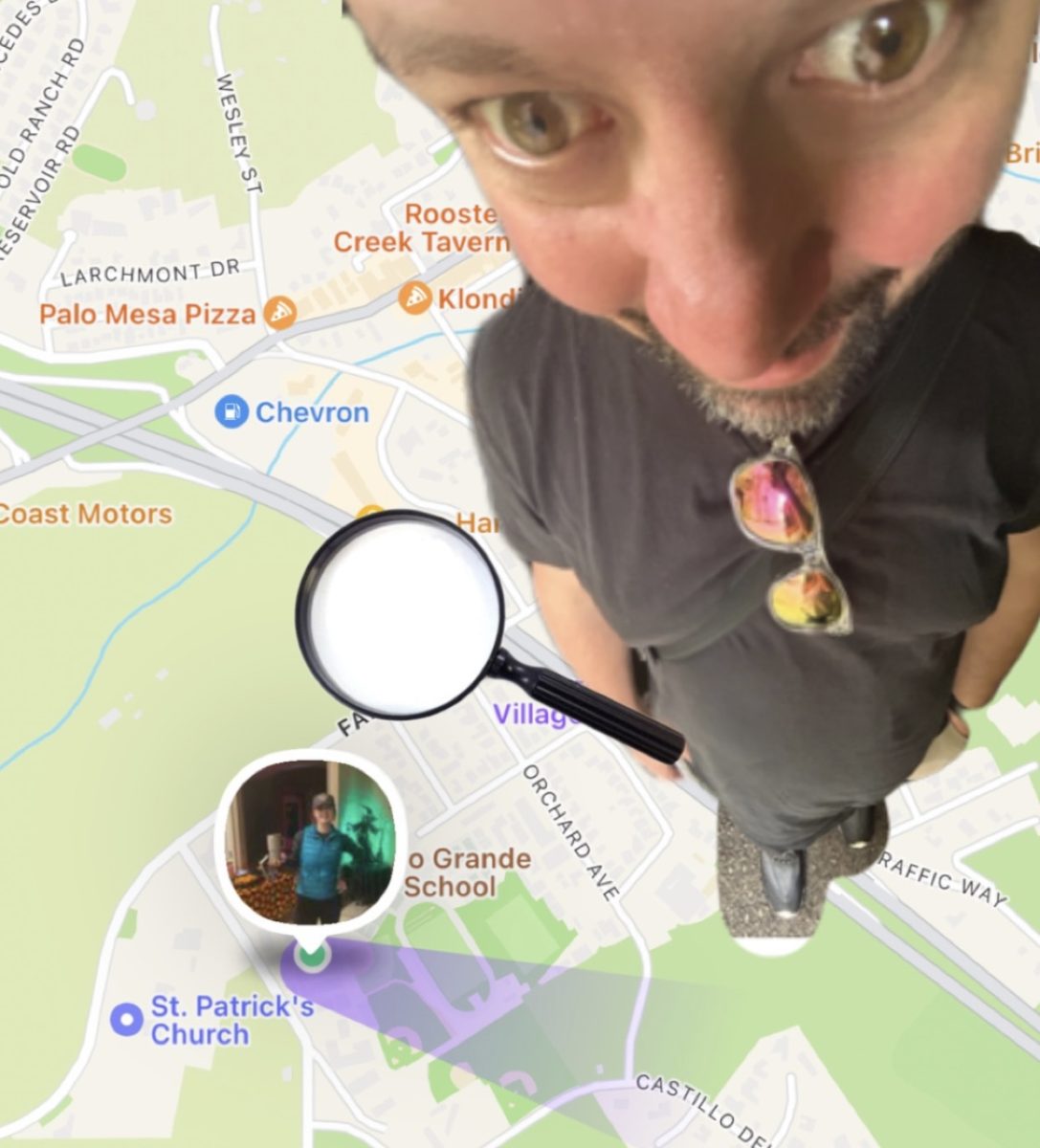Technology has accelerated the development of our society. New technologies such as artificial intelligence and GPS simplify the daily agenda of people with access to it. These changes reap many benefits, but alter norms of the past.
“When you have your phone, you have all sorts of technological advancements. [Privacy] is a much more difficult thing to achieve,” Jason Schmidt said.
Schmidt, an AGHS Spanish teacher, believes the role of privacy has changed drastically over the years.
“[Technology is] a lot more precious now,” Schmidt said. “Back in my day, when I was a wee little lad, it was harder to track [people] because technology was totally different.”
With time comes new tech, the most relevant example for privacy among high school students could be tracking services such as Life360.
Mary Ellen Mosley, mother of two and a middle school science teacher, uses Life360 on a daily basis.
“Life360 is beneficial to our family because we have a split household,” Mosley said. “I share 50/50 custody so it’s nice to be able to check in on [the kids] when they are at their dad’s. I also have a daughter who drives, so I like being able to see where she is.”
Having tracking services is beneficial for parents.
“[Tracking my kids] is a matter of convenience,” Schmidt said. “I trust them to do what I tell them, but because things move faster and with technology, society moves faster, it’s just convenient to know where everybody is.”
Between Schmidt and his kids, they establish a level of trust through tracking services. This differs from Schmidt’s recollection of his childhood.
“Back in my day, you would just agree to meet up at a certain time and hope everybody showed up. Time wasn’t as precious. There was more freedom to just wait,” Schmidt said.
The inconveniences of lesser technology 30 years ago are no longer a concern. An Instagram survey on whether high school students have parents that use Life360 or not concluded that nearly 48% of the 132 respondents use the tracking service (Yes: 63 No: 69).
While Life360 offers convenience related benefits, some AGHS students dislike the app.
“I feel like it’s invasive, just considering you can modify the app to get it to tell your parents more information about your whereabouts and also how you were driving, where you were driving, how far and how fast,” Dana Petker (‘25) said.
The invasiveness of Life360 is a common theme among complaints. Unlike Find My or other cellular tracking services, Life360 provides users with more information.
“If it was just location I’d be fine with it. But stuff like speed and breaks and average speed is not something I like my mom knowing,” Daniel Munoz (‘25) said.
Life360, although an app for safety, now has students feeling uncomfortable and unsafe.
“I feel like no one should know exactly where I am all the time. I feel like as much as it’s a safety measure, it also makes me not safe, as in more people know where I am,” Sofia Kardel (‘25) said. “It’s frustrating. It notifies me way too much. It notifies me when people arrive home or exit home. It notifies me when my sister’s battery is low, which I don’t care about. It feels intrusive.”
However, Kardel’s view of Life360 is not all negative.
“Sometimes, it’s good. Because when my friend lost her phone I was able to find it. But also, if her phone gets stolen, then everyone will know where I am,” Kardel said.
With responsible care for phones, teens tracking each other on Life360 can be beneficial.
A survey concluded that 52% of 121 high school students track their friends on Life360 (Yes: 63; No: 58). AGHS students see the growing traction of Life360 in a more positive light.
“I think it’s actually more safe to have a friend’s location just in case they get hurt or they go missing and their parents don’t have their location,” Munoz said.
Whether its parents or peers, Life360 updates peoples’ locations every two seconds, ensuring the utmost efficiency for tracking others.
“It’s nice to know that someone knows where I am,” Carly Gallagher (‘26) said.
Life360 not only provides safety precautions, but conveniences as well.
“It can be kind of helpful in some cases to know where my friends are if we’re meeting somewhere and we didn’t establish an exact location,” Petker said.
The overall consensus is that Life360 can be invasive, but overall is a beneficial safety precaution between friends and family.
“Sometimes I do feel like a ‘creeper’ checking their location/speed/arrival times,” Mosley said. “But I also believe knowledge is power!”
It’s no secret that technology will continue to become more integrated in our everyday lives. Whether people can benefit from changes to the access of privacy is relative to how we can responsibly use these resources for the sake of convenience and safety.








